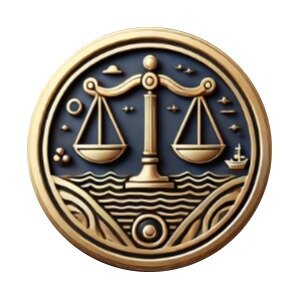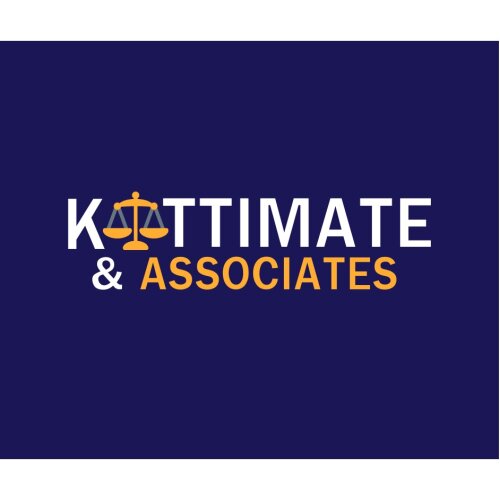Best Securities Lawyers in Thailand
Share your needs with us, get contacted by law firms.
Free. Takes 2 min.
Or refine your search by selecting a city:
List of the best lawyers in Thailand
About Securities Law in Thailand
Securities law in Thailand governs the trading and offering of securities, such as stocks and bonds, in the Thai financial markets. The main regulatory body overseeing securities in Thailand is the Securities and Exchange Commission (SEC), which ensures transparent and stable market operations. The SEC is responsible for enforcing legal standards aimed at protecting investors, maintaining fair markets, and facilitating capital formation. Thailand's securities laws are complex and often subject to frequent updates, aligning with global standards to attract foreign investors while protecting local economic interests.
Why You May Need a Lawyer
Individuals and businesses may require the assistance of a securities lawyer in a variety of situations. Common scenarios include:
- Navigating the legal requirements for issuing securities or entering the stock market.
- Compliance with reporting and regulatory requirements imposed by the SEC.
- Handling cases of securities fraud or market manipulation allegations.
- Restructuring corporate finance or mergers and acquisitions involving securitized assets.
- Resolving disputes between shareholders or other market participants.
A legal expert specializing in securities law can provide invaluable guidance to ensure adherence to applicable regulations and mitigate potential legal risks.
Local Laws Overview
Securities laws in Thailand are primarily governed by the Securities and Exchange Act B.E. 2535 (A.D. 1992), which outlines the rules for public offerings, trading, and compliance. Key aspects include:
- Public Offerings: Any offer of securities to the public must comply with the SEC's regulatory requirements, including registration and disclosure obligations.
- Insider Trading: Insider trading is strictly prohibited, with severe penalties for those benefiting from undisclosed, material information.
- Market Manipulation: Laws are in place to prevent misleading statements, rumors, or any acts that could distort market conditions to protect investors and maintain fairness.
- Corporate Governance: Companies must adhere to strict governance standards, ensuring transparency and accountability to shareholders.
Frequently Asked Questions
What is the role of the SEC in Thailand?
The Securities and Exchange Commission (SEC) is the primary regulator for securities in Thailand. Its role is to implement securities laws, protect investors, and enhance market transparency and efficiency.
Can foreigners invest in Thai securities?
Yes, foreigners can invest in Thai securities. However, certain restrictions may apply, such as foreign shareholding limits in particular industries.
What constitutes a security under Thai law?
Securities can include stocks, bonds, debentures, investment units, and any financial instruments specified by the SEC as securities.
How can one report securities fraud in Thailand?
Suspected securities fraud can be reported to the SEC, which has mechanisms in place to investigate and take appropriate action when necessary.
Are there penalties for insider trading?
Yes, insider trading is illegal in Thailand and attracts heavy fines, imprisonment, or both, depending on the severity of the offense.
What are the disclosure requirements for public companies?
Public companies must regularly disclose financial and non-financial information, including annual reports and any material changes affecting their operations.
What should I look for in a securities lawyer?
Look for a lawyer with extensive experience in securities law, strong regulatory knowledge, and a proven track record in handling similar cases.
How long does the IPO process take in Thailand?
The IPO process in Thailand can take several months to over a year, depending on the complexity of the offering and compliance with SEC requirements.
What is a derivative in the context of Thai securities?
Derivatives are financial contracts whose value is derived from an underlying asset. They are used for hedging risks or speculative purposes in the Thai market.
Is approval required prior to issuing new securities?
Yes, companies need SEC approval before issuing new securities to ensure all legal requirements are met and adequate disclosure is provided to investors.
Additional Resources
For those seeking further information or assistance, consider the following resources:
- Securities and Exchange Commission (SEC): The regulatory body for securities law and investor protection in Thailand.
- Stock Exchange of Thailand (SET): Provides detailed market data, news, and educational resources related to investment.
- Thai Investors Association: Offers support and information for investors in the Thai securities market.
- Legal Firms: Firms specializing in securities law can provide personalized legal assistance and advice.
Next Steps
If you require legal assistance in securities, it is advisable to proceed as follows:
- Identify Your Needs: Determine the specific securities issue or query you need assistance with.
- Research Potential Lawyers: Look for reputable lawyers or law firms with expertise in Thai securities law.
- Schedule Consultations: Arrange initial consultations to discuss your situation and gain preliminary advice.
- Evaluate Options: Compare different legal options and fee structures to select the best fit for your requirements.
- Engage a Lawyer: Once confident in your choice, formally engage the lawyer to assist with your securities matter.
Having a capable legal advisor can significantly enhance your ability to navigate the complexities of securities law and safeguard your interests effectively.
Lawzana helps you find the best lawyers and law firms in Thailand through a curated and pre-screened list of qualified legal professionals. Our platform offers rankings and detailed profiles of attorneys and law firms, allowing you to compare based on practice areas, including Securities, experience, and client feedback.
Each profile includes a description of the firm's areas of practice, client reviews, team members and partners, year of establishment, spoken languages, office locations, contact information, social media presence, and any published articles or resources. Most firms on our platform speak English and are experienced in both local and international legal matters.
Get a quote from top-rated law firms in Thailand — quickly, securely, and without unnecessary hassle.
Disclaimer:
The information provided on this page is for general informational purposes only and does not constitute legal advice. While we strive to ensure the accuracy and relevance of the content, legal information may change over time, and interpretations of the law can vary. You should always consult with a qualified legal professional for advice specific to your situation.
We disclaim all liability for actions taken or not taken based on the content of this page. If you believe any information is incorrect or outdated, please contact us, and we will review and update it where appropriate.
Browse securities law firms by city in Thailand
Refine your search by selecting a city.
















